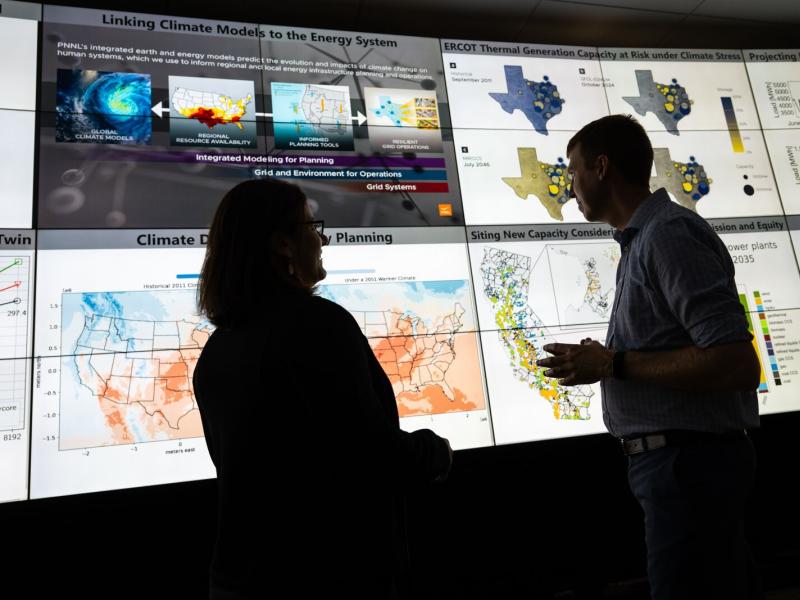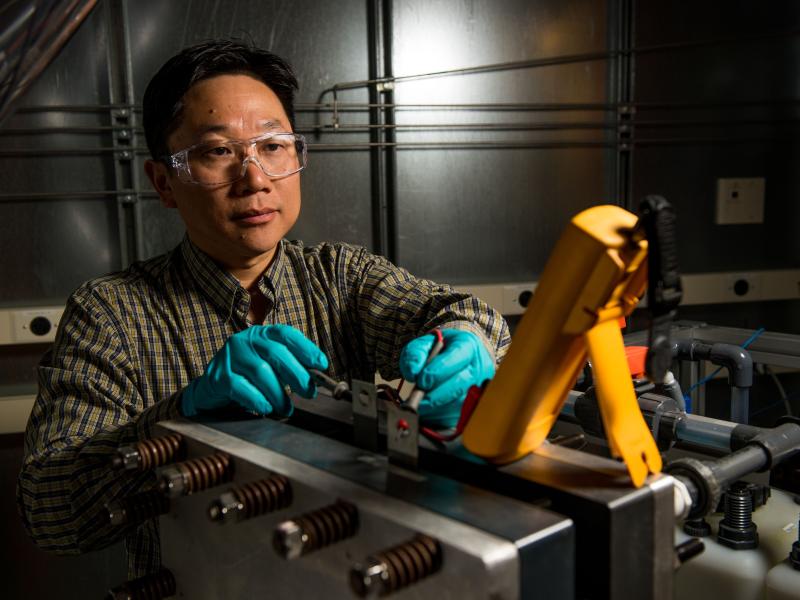
Regional Impact
Regional Impact
Image by Eric Pahl | Shutterstock.com
Pacific Northwest National Laboratory (PNNL) is an asset for the nation, our region, and local communities. Headquartered in Richland, Washington, with growing locations in Sequim, Seattle, and Portland, we are one of the largest employers in Eastern Washington, the second-largest research institution in the state, and a major contributor to the regional economy.
PNNL takes a multidisciplinary approach to complex challenges. Collaborations with utilities, industry, universities, ports, cities, Tribes, states, and partners are key to moving discoveries from the lab to impacts on the ground. We are eager to partner with regional stakeholders to demonstrate new technologies or methods that can then be scaled nationally.
Supporting Our Regional Energy Transition
PNNL is committed to supporting our communities and region in a resilient, reliable, and affordable energy transition. We provide unbiased technical expertise and multidisciplinary studies to help decision makers, planners, and industry clarify needs and implement solutions to enhance energy reliability and security while minimizing costs and burdens on communities.
Some areas where PNNL research and development studies and technical assistance are informing the regional energy transition include:
- Electric grid resilience and climate modeling
- Energy storage (batteries, hydrogen, and more)
- Energy affordability
- Biofuels and bioproducts
- Carbon capture and storage
- Building energy codes and energy efficiency.
Learn more about ways that PNNL partners with utilities, businesses, and the public sector here.
Enabling Homeland Security Solutions for Our Region
The Northwest Regional Technology Center for Homeland Security connects PNNL researchers and capabilities with private and public stakeholders to address challenges in resilience, response, recovery, first responder technology, cybersecurity, and other areas.
Strengthening the Regional Innovation Ecosystem
National laboratories and federal investments play an important role in regional innovation ecosystems by providing foundational research infrastructure, developing new methods and technologies to address complex challenges, and strengthening the regional STEM workforce. Support from Washington State has helped to attract federal investment for key research initiatives.
State-of-the-Art Research Facilities
Facilities like the Environmental Molecular Sciences Laboratory (EMSL), a Department of Energy Office of Science user facility; the Energy Sciences Center; the Systems Engineering Building; the Electricity Infrastructure Operations Center; the PNNL Lab Homes; the Environmental Chambers; underwater testbeds; and recently-opened Grid Storage Launchpad provide state-of-the-art facilities for visiting researchers, joint university-PNNL appointees, and industry partners.
PNNL Campus as a Living Laboratory
We develop and test technologies on our campus that can be adopted in our communities, the region, and across the nation. For example, we have developed and tested open-source transactive energy management technology on our own campus that was installed in Spokane’s Eco-District and has the potential to save billions if scaled nationally. Building on the Eco-District’s success, we’re also applying our expertise to make homes and commercial buildings more efficient through our Connected Communities.
Science, Technology, Engineering, and Mathematics (STEM) Education and Workforce Development
PNNL’s Office of STEM Education and Workforce Development advances the Department of Energy mission to prepare and develop our future STEM workforce and national competitiveness through hands-on STEM learning experiences for students, educators, and the community. Ongoing collaborations with regional partners, including school districts, higher education institutions, and other STEM partners reach approximately 30,000 students, 1,300 interns, and 700 teachers annually.
Moving PNNL Technology to the Regional Marketplace and Beyond
PNNL increases the economic impact of its federally funded research and development by speeding the transfer of technologies from the laboratory to the commercial marketplace. Businesses in the Pacific Northwest and beyond partner with PNNL to gain valuable insights into emerging and new technological developments and secure a competitive advantage. To browse more than 700 technologies that are currently available for commercialization, click here.




